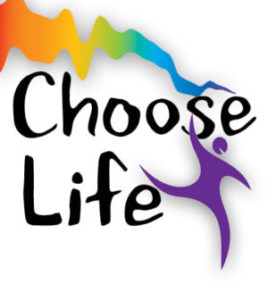 On Friday night, on her tiptoes, a two-year-old in a lovely summer dress is helped by Rabbi Levy to light the Sabbath candles. Her parents, holding a baby, recite the blessing.
On Friday night, on her tiptoes, a two-year-old in a lovely summer dress is helped by Rabbi Levy to light the Sabbath candles. Her parents, holding a baby, recite the blessing.
The congregation joins the parents in an Atrium filled with people, suffused with a summer sunset and two lit candles. The words of the blessing for the candles are familiar and ancient. They are rooted in a long Jewish tradition and had appeared already in a ninth-century prayerbook. Reciting the blessing in community creates a seamless connection. Recited in the present it creates a protective canopy across time and space.
On Friday night, one week after the sinister Nazi march in Charlottesville, our congregation of Temple B’rith Kodesh in Rochester NY, ushers in the holy Sabbath; it also celebrates a new life in a baby naming ritual.
Rabbi Levy offers the blessings for the child’s entering a brit, a covenant, with God. She recites the blessing for the baby’s wellbeing and the traditional wish that he may grow into a life of study of Torah, of loving relationships, and the performance of good deeds.
One week after the Jewish community in Charlottesville was terrorized, our TBK synagogue welcomes the baby who is given his Hebrew name. The naming marks a future replete with life-cycle events in which his Hebrew name will be invoked. At a Jewish wedding, for example, the Hebrew names of a couple are used on the ketubah, their Jewish marriage document. When a person is called to the Torah, an honor bestowed during a synagogue service, he or she is called by their Hebrew name. And so on Friday we celebrate a new life.
In our synagogue in upstate New York we are, in spirit, in Virginia, holding our breath. Rabbi Stein recounts in his sermon the events of the week, speaking of the terrorizing of the Charlottesville Jewish community. He describes the fear as a mob is shouting, “There’s the synagogue!” followed by chants of ‘Sieg Heil,‘ by armed Nazis with torches. We are right there with the people who had to make the agonizing decision to leave, but not through the front door; instead they decide go out through a back exit. And we remember Kristallnacht.
Here and in synagogues around America we remember the historic moments when synagogues had been the first targets of anti-Semitic hatred. The Charlottesville violence collides with the horrors of pogroms, the tragedy of the Holocaust, and with the terrors of slavery, and the violence of the Confederacy and the cruelty of Jim Crow and the endemic racism, and virulent anti-Semitism.
“What is the Jewish response? What can I as a Jew, and we as a Jewish community uniquely offer to help? What can we do that will take us down the path to a better world?”
The questions, raised by Rabbi Stein, are indispensable; we must find the way to exhale. They are vital questions to allow us to inhale the breath of life. We can do it. Rabbi Stein reminds us to draw on our tradition of Tikkun Olam, Repairing the World. “To do our share, to take action when we encounter brokenness.” We can act in the world for justice, equality, economic parity and human rights and make a difference.
We know from Midrash and experience that even in hard times Jewish tradition offers ways of affirming life. We are often reminded that Torah commands us in fact to choose life. In Deuteronomy 30:19 we read: “I have put before you Life and Death, blessing and curse. Choose life!” We Choose life!